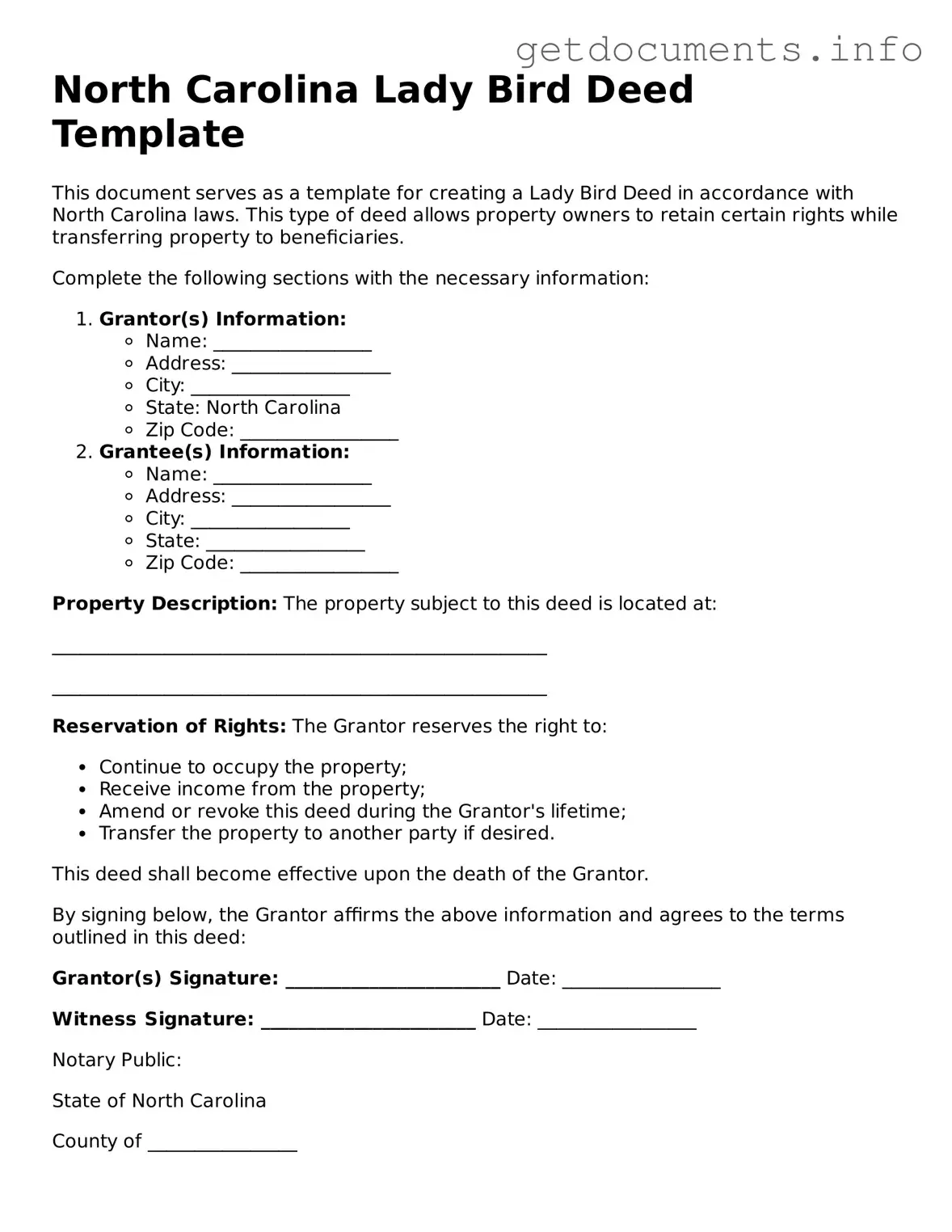Free Lady Bird Deed Template for North Carolina
The North Carolina Lady Bird Deed is a legal document that allows property owners to transfer their real estate to beneficiaries while retaining control during their lifetime. This unique deed provides flexibility and can help avoid probate, ensuring a smoother transition of property upon death. To get started with this form, click the button below.
Access Lady Bird Deed Editor

Free Lady Bird Deed Template for North Carolina
Access Lady Bird Deed Editor
Got places to be? Complete the form fast
Fill out Lady Bird Deed online and avoid printing or scanning.
Access Lady Bird Deed Editor
or
⇩ PDF File
